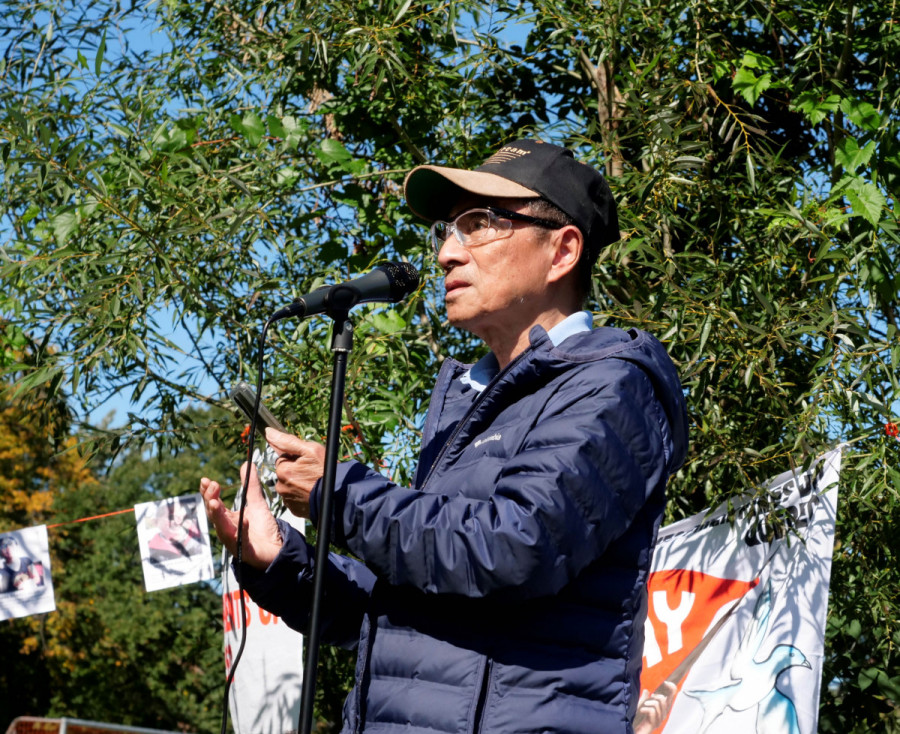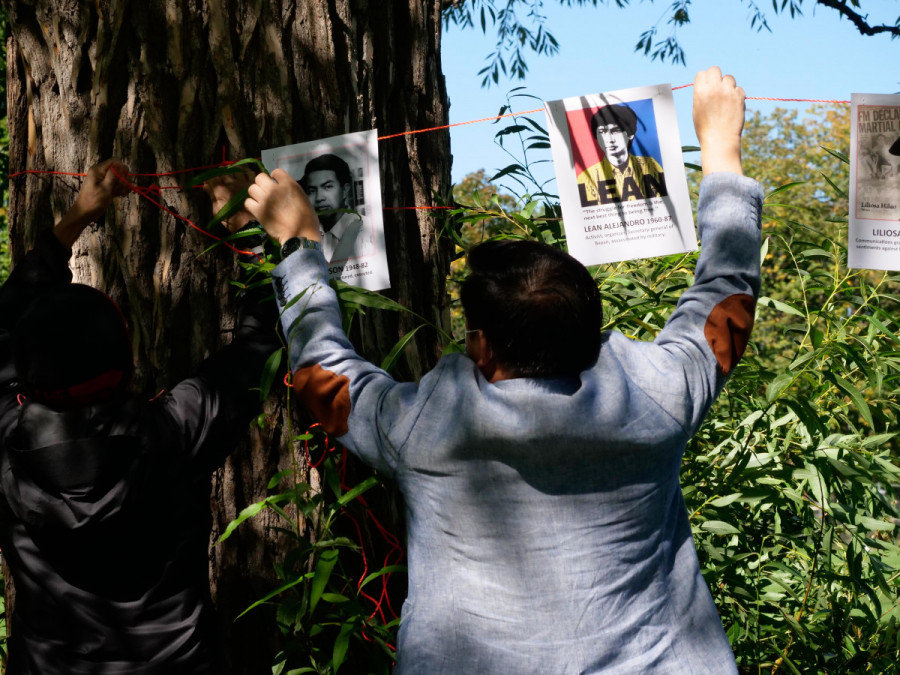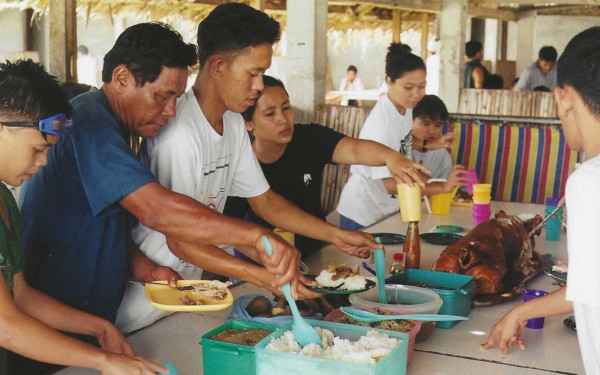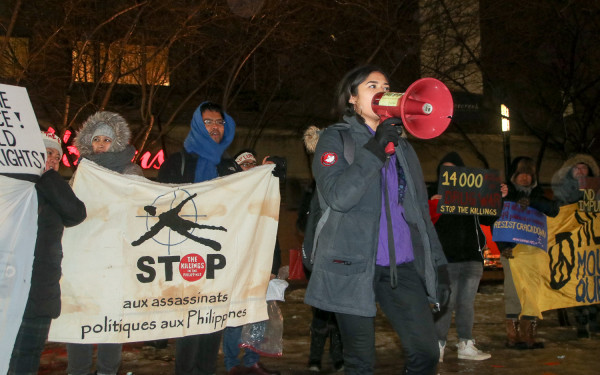Filipino group Anakbayan commemorate the survivors of martial law
48 years after martial law was first declared, Filipinos in Montreal gather to reflect
A crowd of around 20 people, including six Montreal based progressive Filipino groups, gathered to commemorate the lives of martial law victims in the Philippines at Mackenzie-King Park on Sunday, Sept. 20.
The Montreal chapter of the international youth-led Filipino organization Anakbayan—meaning children of the nation in Tagalog—held the event a day before the 48th anniversary of the first martial law declaration in the country by former president Ferdinand Marcos.
“We organized these kinds of events because [President Rodrigo] Duterte is following in [Marcos’s] footsteps,” said Sheryl Anne Montano, a member of the Centre for Philippine Concerns.

Many Filipinos, including those from the diaspora, worry about history repeating itself as they observe the political parallels between Duterte’s presidency and Marcos’ tyranny.
Filipino grassroots movements around the world are collaborating with Canada’s Malaya Movement. Their goal is to denounce the current Philippine President Duterte’s plans of reinstating martial law and enacting policies that infringe on human rights such as the controversial anti-terror bill.
The temporary law was characterized by the government’s censorship of the media, a takeover of the courts by the military body and the centralization of the legislative and judicial branches under the president.
Marcos’ regime shifted from elected president to a dictatorship during martial law to reduce the disorder caused among youth activists and communist groups in the country. The increased military power in the government branches led to political corruption—according to Transparency International’s 2004 Global Corruption Report, $5 billion to $10 billion allegedly embezzled by Marcos—and human rights abuse.
“We’re supposed to have three branches of power to decentralize and avoid fascist regimes or authoritarian regimes. But what’s going to happen if one person has control over these three systems?” —Veronica Jane Bertiz
Tony de Jesus, a member of the International Coalition for Human Rights in the Philippines, recounted a chronicle of those who were murdered for defending Filipino human rights. De Jesus went through each account, following a string of their portraits that hung from a tree behind him.
Among the portraits was student activist Archimedes Trajano. At a student gathering where the dictator’s daughter Imee Marcos was invited as a speaker, Trajano publicly criticized her position as chairperson of the Kabataang Barangay youth organization.
De Jesus said Imee Marcos’s military bodyguards then picked him up and tortured him for 36 hours. His body was found in the streets, presumably tortured to death from the signs of beatings left on his corpse.
The abduction of martial law critics was common under Marcos’s dictatorship. The list of torture methods used by authorities included a deadly game of Russian roulette, electrocution, decapitations, and rape.

Members of different Filipino organizations such as the International Coalition for Human Rights in the Philippines and the Philippine Independent Church gathered to speak on the torture and murder of those who defended human rights or criticized the Philippine government during the Marcos dictatorship.
The martial law era is a polarizing topic among Filipinos; some argue that the Philippines is worse off now than during the imposition of military forces in the government. They claim that no human rights were being abused and the economy was doing better during martial law, according to Filipino lawyer Chel Diokno on the Woke Up PH podcast.
“The mismanagement of the administration has been benefiting the oligarchs. It has been benefiting the elites,” said Anakbayan’s education officer Veronica Jane Bertiz. “That is why there are people here who are saying ‘we had a good time.’ But you are a landowner, your family had farms, your family had farmers.”

According to Bertiz, the farming sector is vital in rural areas of the Philippines. Yet, Filipino farmers still rely on insecure income from landowners. These landless rural labourers are being exploited with little to no pay, especially during martial law where farmers and their family could potentially face harassment or death if they go against their employers.
“Not a lot of Filipino workers are under a union because they get threatened by their employers if they joined one,” said Montano.
“We’re supposed to have three branches of power to decentralize and avoid fascist regimes or authoritarian regimes,” Bertiz said. Like Canada’s political system, the Philippines government is divided into a legislative, executive, and judicial branch. “But what’s going to happen if one person has control over these three systems?”







